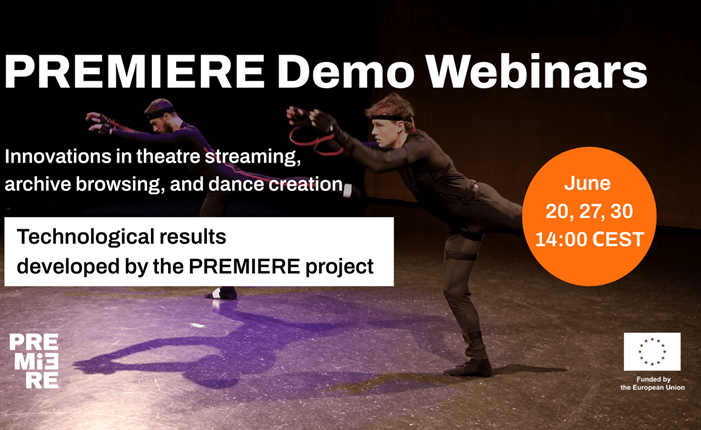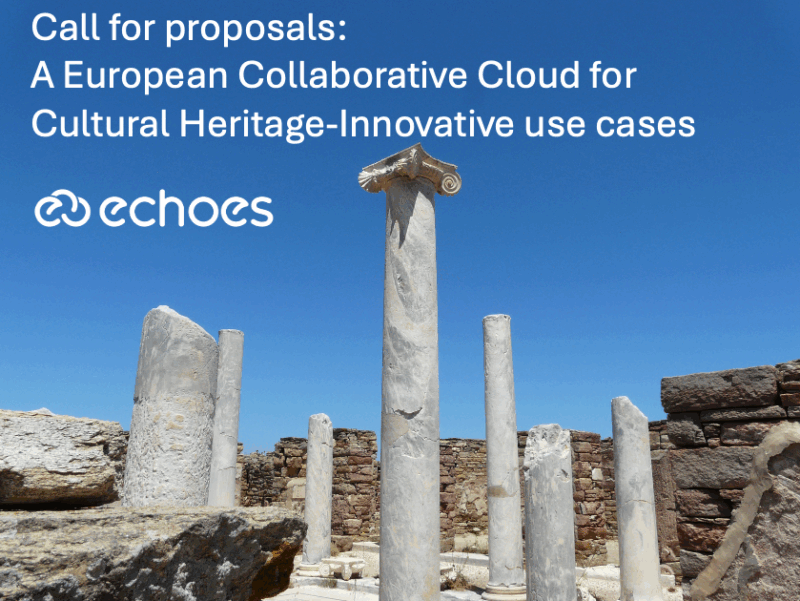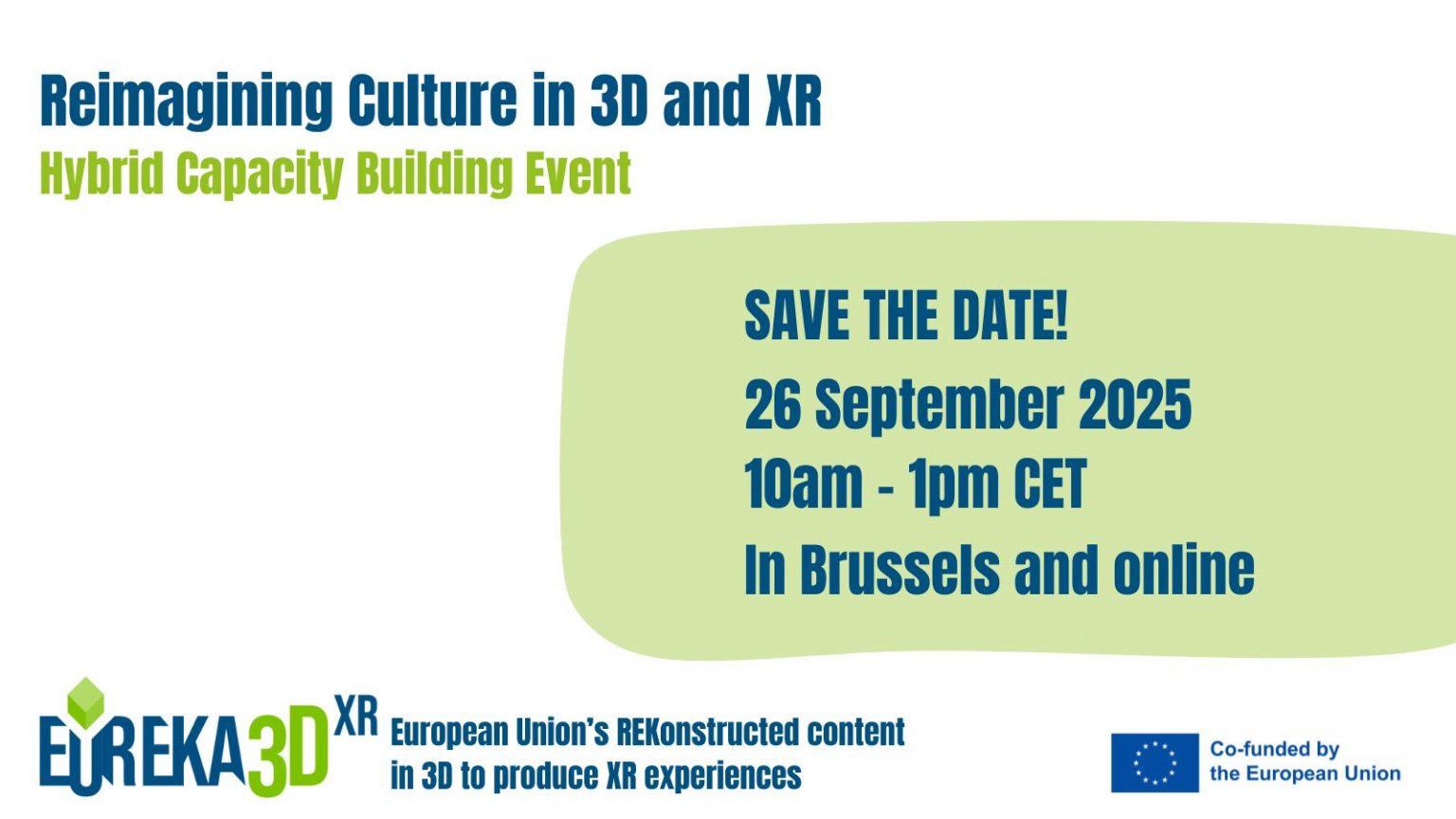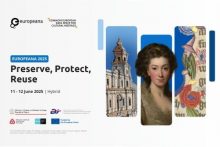-
Join the
Digital Meets Culture
Newsletter! -
Join the
Digital Meets Culture
Open Newsroom! If you have interesting news and events to point out in the field of digital cultural heritage, we are waiting for your contribution.
If you have interesting news and events to point out in the field of digital cultural heritage, we are waiting for your contribution.
-
Free text
-
-
Upcoming events
-
 Collaboration agreement has started between the SECreTour project and Omnis Vision in June 2025
Collaboration agreement has started between the SECreTour project and Omnis Vision in June 2025The SECreTour Network is growing! We are very glad to announce that Omnis Vision SA has joined the SECreTour Network of Common Interest. Omnis Vision SA is a strategic partner for the enhancement, management, and development of real estate assets … Continue reading →
 Collaboration agreement has started between the SECreTour project and Studio Macaco in June 2025
Collaboration agreement has started between the SECreTour project and Studio Macaco in June 2025The SECreTour Network is growing! Studio Macaco has joined the SECreTour Network of Common Interest. Studio MACACO (Ludens Sagl) is a Swiss-based creative software company focused on developing interactive digital experiences for the tourism and cultural sectors. Through the use … Continue reading →
Topic: past events
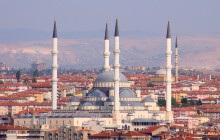
In the 21st century, the world faces epochal changes which affect every part of society, including the arenas in which Cultural Heritage (CH) is made, held, collected, curated, exhibited or simply exists. This workshop provided a framework to understand this context of change and the impact of the move from analogue to digital. International experts met in Ankara (Turkey) on 13-14 May 2015 to attend the event, organised in the framework of the European project RICHES (Renewal, Innovation and Change: Heritage and European society). Continue reading
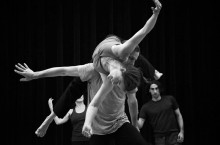
“Memory ^ sentiment ^ body ^ space ^object – Dialogues across and between dance and art” is an interdisciplinary symposium that emerged from Body Space Object Roundtables at the School of Art and Design at Coventry University. It aims to consider how performative and material practices have articulated the embodied nature of memory and sentiment in relation to objects and space. Contributions are invited, registration is open! Continue reading

FabLab.iMAL presents its next workshop on laser-cutting, 3D printing & CNC milling, being held in Brussels on 26 May 2015 from 10.00 to 13.00. In 3 hours, you will get introduced to the basics and the safety instructions that will make you able to use the laser-cutter, 3D printers and CNC milling machine. Continue reading
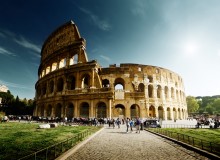
EAGLE 2016 International Conference on Digital and Traditional Epigraphy in Context is the second in a series of international conferences planned by EAGLE BPN. The event will feature presentations and hands-on workshops regarding themes of the EAGLE project, led by the project’s Working Groups. Continue reading
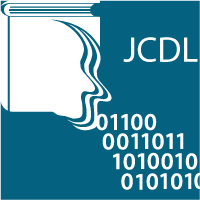
The 2015 edition of the Joint Conference on Digital Libraries will be held from June 21st to 25th, 2015 at the University of Tennessee Conference Center in Knoxville, Tennessee, USA. This year theme is “Large, Dynamic and Ubiquitous –The Era of the Digital Library”. Continue reading

DCDC15 (DCDC as Discovering Collections Discovering Communities), being held at Greater Manchester on 12-13 October 2015, will look at the varied and innovative ways in which archives, museums, libraries and academia can engage with audiences in the digital age, for a more appealing user experience, the enrichment of heritage collections and new collaboration and business opportunities. Continue reading

On 9-10 July 2015, in Vienna, at the Austrian National Library is being held the conference Europeana Creative Culture Jam, final showcase event of Europeana Creative, a groundbreaking project that explores ways for creative industries to connect with cultural heritage. Culture Jam will be a celebration of all that Europeana Creative has achieved and a presentation of the future success to achieve with the fellow creative projects Europeana Food & Drink and Europeana Space. Continue reading
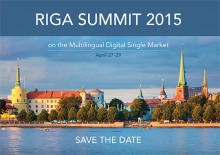
The Riga Summit, being held in Riga from 27 to 29 April, will gather government officials, business leaders, technology developers and language researchers, who will forge a unified vision for the multilingual digital single market. At the event, stakeholders will work together to develop a combined strategy, identify goals, establish partnerships and initiate concrete actions to bring about the vision of a digital single market without language barriers. Continue reading
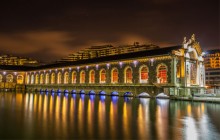
‘What’s next?’ for the museum sector? The Europe’s major conference on the future of Museums call for papers is out. The 2015 edition of MuseumNext will take place in the Swiss city of Geneva between April 19–21. Updates and latest news about the event at Facebook, Twitter and Linkedin. Continue reading

Ultraorbism was an interactive distributed action between two networked connected spaces in two cities: Barcelona and Falmouth. The story was a linear interpretation of the first of the two books of True Story by Lucian of Samosata (a Syrian writer who lived in the second century AD), who tells an impossible journey on which everything is invented, with references to the mythology and literature of the era. Ultraorbism, a project directed by Marcel•lí Antúnez Roca, is part of the European project SPECIFI and case study of the RICHES European project’s research area. Continue reading


